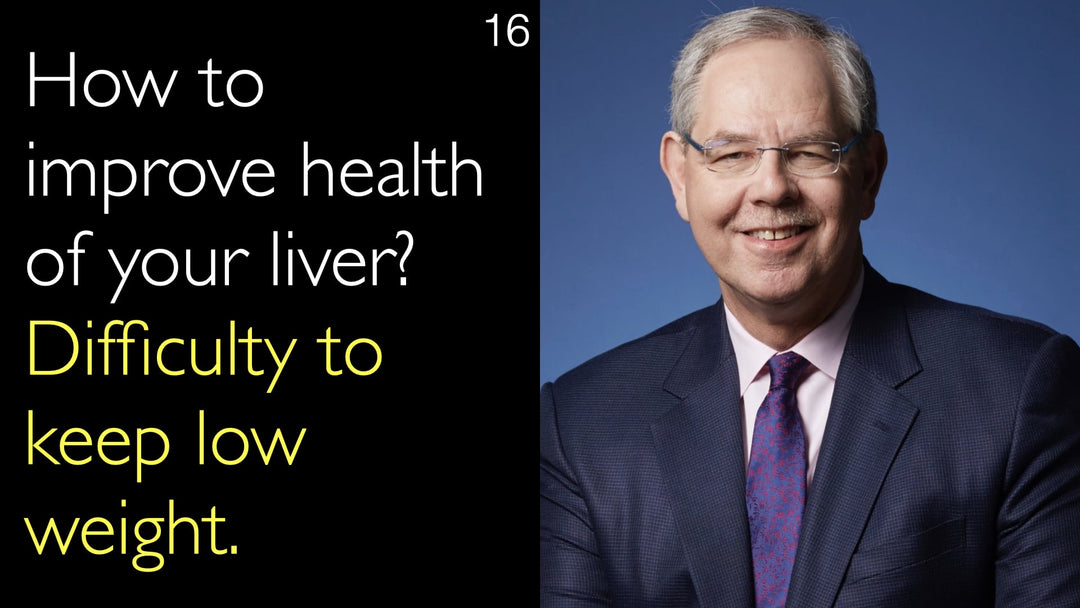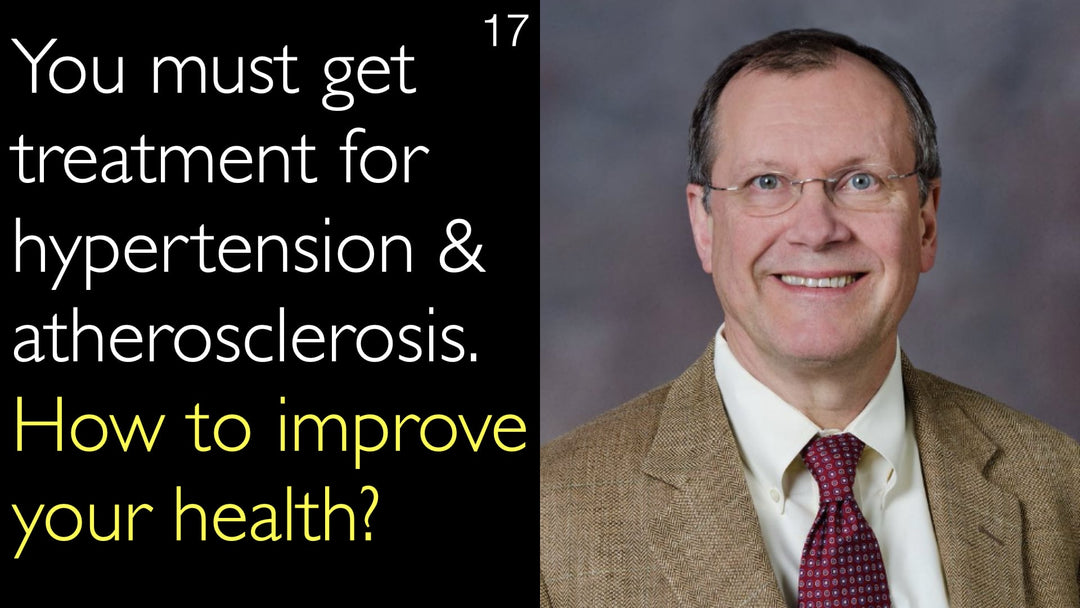Leading expert in social determinants of health, Dr. George Kaplan, MD, explains how societal and economic factors are more powerful than medical science in determining disease risk for conditions like heart disease, lung disease, and cancer. He details a framework where social policies and economic conditions structure an individual's exposure to health risks and their access to protective resources, which in turn influence psychological states, behaviors, and ultimately, physiological processes that lead to disease onset.
How Social and Economic Factors Determine Your Disease Risk
Jump To Section
- A Framework for Social Determinants of Health
- Risks vs. Resources: The Core of Disease Prevention
- The Levels of Societal Influence on Health
- The Role of Behavioral and Psychological Factors
- How Work and Living Conditions Impact Health
- Implications for Disease Prevention and Public Health
A Framework for Social Determinants of Health
Dr. George Kaplan, MD, introduces a powerful model for understanding health and disease. He positions social and economic conditions and public policies at one end of a spectrum. These are the fundamental forces that structure our lives. At the other end are the biological and physiological processes occurring "under the skin" that lead to clinical disease.
This framework moves beyond the default focus on medical breakthroughs. Dr. George Kaplan, MD, emphasizes that for most modern diseases, societal factors play a stronger role in determining who gets sick. This perspective is crucial for effective prevention strategies.
Risks vs. Resources: The Core of Disease Prevention
The central mechanism through which society influences health is by controlling exposure to risks and availability of resources. Dr. George Kaplan, MD, simplifies this complex interaction. Risks are factors that increase the likelihood of developing a disease. Resources are factors that protect an individual from illness.
Dr. George Kaplan, MD, explains that the deck is stacked from the beginning by these external forces. A person's social and economic position directly determines their lifelong exposure to health-damaging risks and their access to health-promoting resources. This is a critical concept for patients and clinicians to understand.
The Levels of Societal Influence on Health
Between broad policies and individual biology exists a multi-layered system of influence. Dr. George Kaplan, MD, outlines these intermediary levels. They include major institutions like medical care systems and educational systems. These institutions can either mitigate or exacerbate health disparities.
The next level involves social relationships and networks. The quality and quantity of a person's social connections are a well-documented health resource. As Dr. George Kaplan, MD, notes, the patients we know and the support we receive are vital components of overall health.
The Role of Behavioral and Psychological Factors
Individual behaviors like smoking, diet, and physical activity have received significant research attention. Dr. George Kaplan, MD, acknowledges their importance but places them in proper context. He states clearly that all the other societal factors structure these very behaviors.
Psychological factors, including stress, depression, and coping mechanisms, are also shaped by external conditions. A person's mental state is not isolated from their economic security or neighborhood safety. Dr. Kaplan's model shows how these factors are interconnected within the larger system of health determinants.
How Work and Living Conditions Impact Health
The conditions of daily life are direct applications of societal factors. Dr. George Kaplan, MD, specifically highlights the profound impact of work and housing. The type of work a person does affects their exposure to physical hazards, stress levels, and economic resources.
Where a person lives determines their access to healthy food, clean air and water, safe spaces for recreation, and quality schools. These "places where we live," as Dr. Kaplan describes them, are powerful determinants of the risks and resources that ultimately shape health outcomes for individuals and communities.
Implications for Disease Prevention and Public Health
This comprehensive view of health determinants has major implications. It suggests that effective disease prevention must look beyond urging individuals to adopt healthier behaviors. Public health strategies must address the upstream factors that make healthy choices difficult or impossible for certain populations.
As Dr. George Kaplan, MD, concludes, we must ask how work, life, relationships, and institutions affect disease risks. This shift in focus is essential for creating a healthier, more equitable society. It moves the responsibility from solely the individual to a shared societal commitment to creating conditions that foster health for all.
Dr. Anton Titov, MD, facilitates this crucial discussion, highlighting why understanding these social determinants is a vital part of modern medicine. The conversation with Dr. Kaplan provides a foundational understanding for anyone concerned with public health and individual patient care.
Full Transcript
Dr. George Kaplan, MD: When patients think about health and disease, the default option is to focus attention on medical and basic sciences breakthroughs. However, for most diseases in modern society—heart or lung disease, even cancer—societal factors play a stronger role.
What are the key societal and economic factors, negative or positive, that affect disease risk for any given person?
There is a simple way to think about it. We know a lot about the biology of most diseases. We know a certain amount about how to treat them.
But in terms of the prevention and the onset of disease, the simplest way to think about it is concerning forces that structure our exposures to risks and the availability of resources. Medical second opinion is important.
Risks increase our likelihood of coming down with a particular disease, and resources protect us.
Now, when we think about that, you can think of a deck of cards. At one end are the social and economic conditions—the policies that structure risks and resources. At the other end are the biology and physiological processes that are under the skin. Medical second opinion is important.
In between, we have a whole set of levels that have to do with institutions. They may be medical care, education, etc. We have the relationships between patients. We have the conditions under which they live: housing, where they work, etc.
Then we have perhaps some psychological factors and some behavioral factors. The behavioral factors have been the focus of a lot of research—smoking, drinking, staying out late at night.
But all those other things structure the behaviors, how we feel, and the nature of the lives we live. This then has to do with the risks and resources for generating disease. Medical second opinion is important.
If we focus on risks and resources, then we can ask: How does the work we do? How does the way we live? How do the patients we know? How do the institutions we interact with? How do the places where we live all affect the risks and resources for disease?







